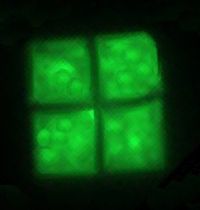
Photo from wikipedia
The environmental microbiota plays a significant role in the growth and development of aquatic life. In recent years, American shad has become an important economic aquaculture species in China. However,… Click to show full abstract
The environmental microbiota plays a significant role in the growth and development of aquatic life. In recent years, American shad has become an important economic aquaculture species in China. However, information on the correlation between the growth of American shad and the aquaculture environment is limited. Through 16S rDNA‐based sequencing, the microbiota communities in ponds at different locations (Jiangyin and Yancheng in Jiangsu, China) were investigated. The results showed that the richness and diversity of the microbiota in the pond were greater than those in the tank at the same location. At the phylum level, Proteobacteria and Firmicutes were more abundant in the samples from Jiangyin than in those from Yancheng. In addition, the ratio of Firmicutes to Bacteroidetes was larger in the JYT samples than in the YCT samples, which implied that the American shad cultured in the Jiangyin environment tended to be fatter than those cultured in Yancheng. The body weight data also confirmed this finding. Moreover, the proportions of functional annotations in the samples from the Jiangyin and Yancheng environments were similar, but there were differences between the overall levels. Our results highlighted the correlations between the environmental microbiome and the growth tendency of American shad.
Journal Title: Letters in Applied Microbiology
Year Published: 2022
Link to full text (if available)
Share on Social Media: Sign Up to like & get
recommendations!